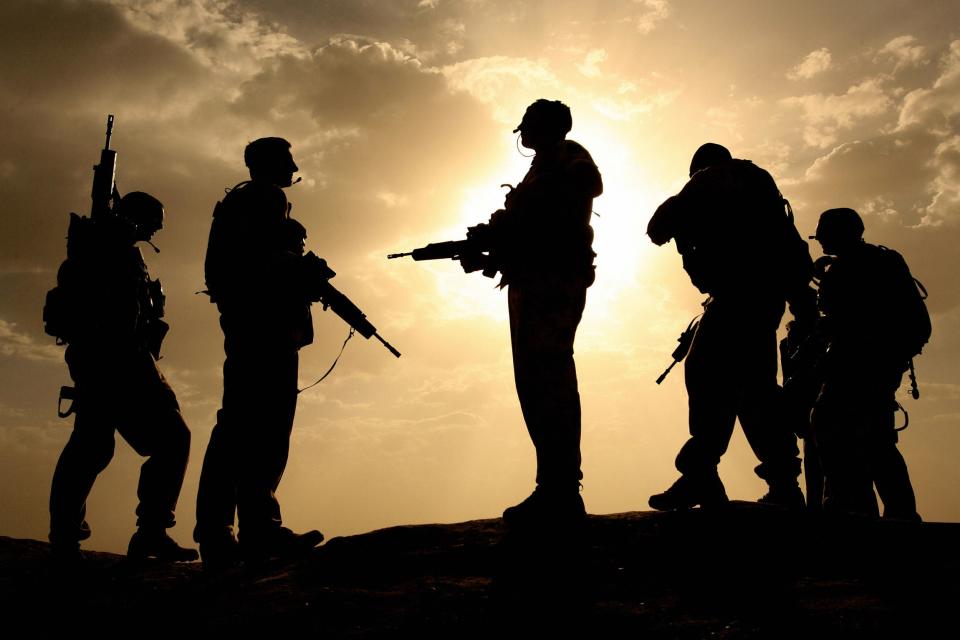Britain will ‘drawdown’ troops from Afghanistan after Biden confirms pullout by 9/11 anniversary

British forces entered Afghanistan in October 2001
(AFP/Getty)Britain is to withdraw nearly all remaining troops from Afghanistan following plans for an American military exit, defence secretary Ben Wallace has confirmed.
The US president, Joe Biden, announced on Wednesday that all of America's 2,500 troops will be withdrawn by 11 September – 20 years to the day after the attacks on US soil that led to the invasion and occupation of Afghanistan.
British forces were first deployed to Afghanistan in October 2001 following the 9/11 attacks and have maintained a presence ever since. A total of 456 have been killed and many more wounded. UK combat operations ended in 2014.
“As we drawdown, the security of our people currently serving in Afghanistan remains our priority and we have been clear that attacks on Allied troops will be met with a forceful response,” Mr Wallace said.
“Most importantly, we must remember those who paid the ultimate sacrifice, who will never be forgotten.”
British military planners had expected to withdraw the bulk of the remaining UK troops in Afghanistan – around 750 – after Donald Trump lost the presidential election.
As vice president, Biden had been notably sceptical about the large-scale US presence in the country and had argued repeatedly against additional forces being sent in sizeable numbers for “surges”.
Almost all Nato troops in Afghanistan, along with those from Australia and New Zealand – just under 7,000 in total – are now expected to leave along with the Americans.
However, it is possible that units of special forces, including British, will remain behind to support Afghan forces against the Taliban and its allies, as per the previous Trump withdrawal plan. The Pentagon is yet to comment on this issue.
US and British forces invaded Afghanistan together to overthrow the Taliban regime in 2001. After the Helmand deployment in 2006, the UK had the largest contingent of foreign troops in the country.
General Sir David Richards, now Baron Richards of Herstmonceux, became the first British commander since the Second World War to have American troops under his command when he became the head of Isaf (International Security Assistance Force) and General Sir Nick Carter commanded a large international force as commander in the south of the country, based in Kandahar.
The war in Afghanistan is the longest in American history and has seen more than 2,000 US service members killed, and 111,000 Afghan civilians killed or injured.
Tobias Ellwood MP, chair of the Commons Defence Committee and a former defence minister, told Times Radio that Washington’s decision was “concerning” and “not the right move”.
“It reflects the troubles we’ve had in interventions over the last couple of decades where we win the war, but lose the peace,” he said.
“We don't put enough effort into the stabilisation and the peacekeeping, the nation building, and encouraging better governance, better security, that indigenous capability so they can look after their own affairs.
“Instead, as we’ve seen in Iraq as well, we defeat the bad guys and then we withdraw, we don't do enough to then lift the country off its knees.
“And I fear what we will see – in fact it’s happening already – is extremism will regroup in Afghanistan in the way that it's regrouping in Iraq, and indeed, to some degree in east Africa as well.”
Read More
Analysis: Afghanistan withdrawal loomed after Trump lost election

 Yahoo Finance
Yahoo Finance 